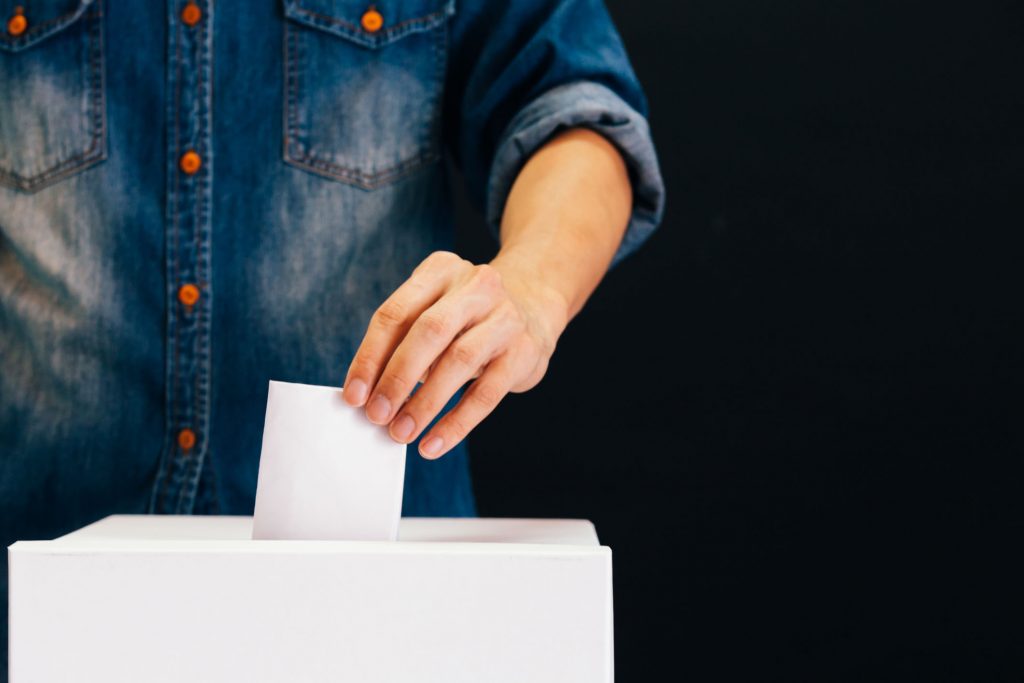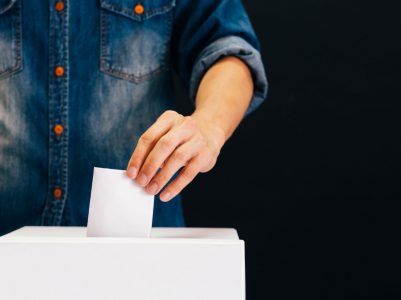By Dr. James Christie, Ambassador-at-Large, Canadian Multifaith Federation.
I love to vote.
Anytime someone offers me a ballot, I sharpen my pencil and get down to it.
I grew up in Québec, where politics is religion. Vote early, vote often, was the only half-facetious maxim of my youth. Influence peddling was one thing; actual corruption was and is, rare. There were, no doubt, a number of reasons to explain this passion for politics.
Growing up in the echo of WWII, my generation and that of my parents, was well aware of the price paid in blood to preserve the franchise. More, the right to vote confirms that we are not only taxpayers; nor are we, heaven forfend, only consumers. In a democracy, when we exercise our right to vote, we become that most precious of persons: a citizen.
For those few moments when we stand alone in a voting booth, with only our conscience and our God to observe, we move the world.
For those few moments, we become the fulcrum upon which the future rests its lever. Never be dismayed by cynics. Every vote counts. Live long enough; suffer a recount or two; and you will learn that the fate of your community may well rest on one vote: yours. The impact of a single vote can be disproportionate; rather like that irritating butterfly flapping its wings in Tokyo and triggering a typhoon in Tasmania.

2020 offers an autumn of elections. New Zealand went to the polls on October 17th. Labour Party Prime Minister, Jacinda Ardern, was returned with an actual majority of seats; almost unheard of in a democracy governed by a complex system of proportional representation.
Power in two Canadian provinces is up for electoral grabs.
And as I recall, something dramatic is in the wind sweeping across the great republic just to the south of the 45th Parallel.
Outcomes aside, elections are gripping. Politics is the only game for grown-ups. I have been eligible to vote since 1969, and in half a century have missed exercising my franchise but once. On that anomalous occasion, I was absent from my jurisdiction without access to an absentee ballot.
Let us take it for granted that everyone who may vote, must vote. That’s the way democracy works; the only way democracy works.
Let us also take it as given that no one should dictate to another for whom that other ought to vote. Admittedly, that has rarely prevented me from candour concerning my own choice.
In the great scheme of things, I suppose I would fall into that category of citizen quaintly described by the Economist as a “man of the left.” I can own that. In reality, I am probably a centrist. I favour a mixed economy of public and private partnership. I believe that government, to borrow from Abraham Lincoln, ought to be “of the people, for the people, by the people.” I believe that the rights, dignity, and potential of all are to be cherished, nurtured, and preserved. I also like to be left alone to the greatest extent possible. To these ends, I have supported candidates across the political spectrum. I have and I do enjoy the friendship of Members of Parliament from all parties –with the exception of extremists of either the right or the left. Political labels and political platforms, in my experience, are often built on shifting sand.
Nevertheless, there is one principle, one thread in the fabric of the body politic which surely connects all citizens of all democracies. That principle was best articulated decades ago by the Rev. Dr. Tom Sherwood. Tom is a minister of The United Church of Canada; a pioneering ecumenical and multifaith Chaplain; a Professor of Religious Studies focusing on the somewhat esoteric sociology of religion – and a democrat of the first water.
The principle? Simple, really. Tom encourages everyone who enters a polling station to vote “for the sake of their neighbour.” In that short phrase is the essence of politics and religion; a consummation devoutly to be desired.
– – –
Dr. James Christie is the inaugural Ambassador-at-Large for the Canadian Multifaith Federation and part of the G20 Interfaith Forum Board of Directors. For 15 years, Christie served at the University of Winnipeg as Dean of Theology, Dean of the Global College, and Director of the Ridd Institute for Religion and Global Policy.


